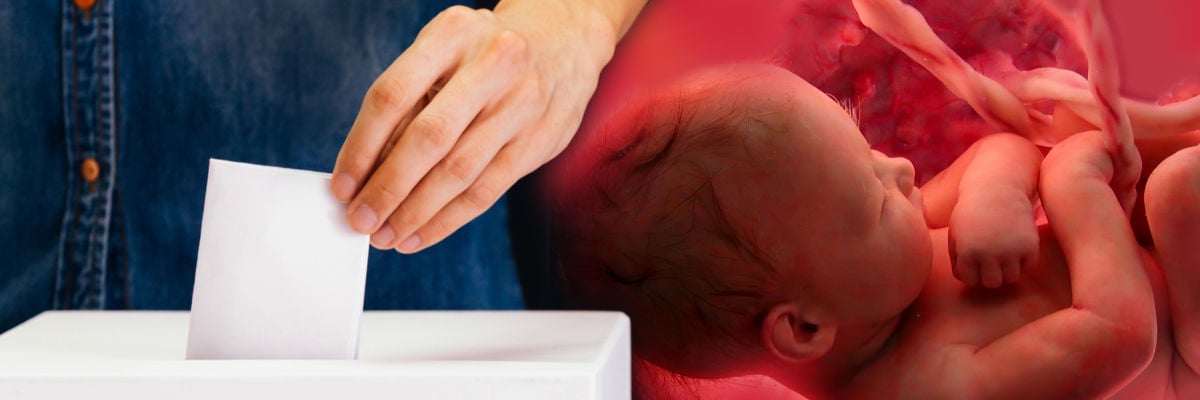
Faith, Abortion, and Voting, Part 2
In this series leading up to Election Day, we will explain why abortion is the most serious and urgent social issue of our time and what this means for Catholic voters. Are we simply free to vote for whatever candidate we prefer, for any reason that’s in our conscience? Or does our right to vote come with objective moral responsibilities that we must consider before casting our ballot?
Last time we noted that not all social issues are equal. Some are so important that we call them preeminent, putting them above all others. These issues deserve the most consideration when we evaluate which candidates to vote for.
Catholics must discern elected officials’ views on abortion and hold them accountable for them, which the United States Conference of Catholic Bishops calls “our preeminent priority.” We can do this by bearing in mind fives rules that Catholic politicians need to follow when it comes to abortion. These rules are based on what the Church has taught through offices such as the Congregation for the Doctrine of the Faith and the USCCB, as well as magisterial statements.
First, it is every politician’s duty to make sure the law recognizes the right to life of all innocent human beings. As the Catechism says, “The inalienable right to life of every innocent human individual is a constitutive element of a civil society and its legislation.” (2273)
Second, this duty includes working for laws that protect an unborn child’s right to life. Protecting unborn human beings from being killed by abortion does not impose Catholic morality; it upholds universal and fundamental human rights.
Third, politicians can never vote to increase or maintain legal access to abortion. As the Congregation for the Doctrine of the Faith taught, “Those who are directly involved in lawmaking bodies have a grave and clear obligation to oppose any law that attacks human life. For them, as for every Catholic, it is impossible to promote such laws or to vote for them.”
Fourth, politicians can support laws that limit abortion even if those laws still allow some abortions to be legal. For example, in a country where abortion is legal for any reason, a Catholic politician could vote for an abortion ban that contains an exception for pregnancies caused by rape if he knows it’s not politically possible to pass a total ban. Pope St. John Paul II said that “when it is not possible to overturn or completely abrogate a pro-abortion law, an elected official, whose absolute personal opposition to procured abortion was well known, could licitly support proposals aimed at limiting the harm done by such a law” (Evangelium Vitae, 73).
Finally, Catholic politicians who vote for laws or fund bills that promote abortion should not present themselves for Holy Communion because they have committed the grave sin of formally cooperating with a grave evil. Cardinal Joseph Ratzinger (the future Pope Benedict XVI) said in 2004:
Regarding the grave sin of abortion or euthanasia, when a person’s formal cooperation becomes manifest (understood, in the case of a Catholic politician, as his consistently campaigning and voting for permissive abortion and euthanasia laws), his pastor should meet with him, instructing him about the Church’s teaching, informing him that he is not to present himself for Holy Communion until he brings to an end the objective situation of sin, and warning him that he will otherwise be denied the Eucharist.
So those are the duties that Catholic politicians have when it comes to the preeminent issue of abortion, but what about Catholic voters? What rules do we need to follow? We will explore that question in our next entry.



